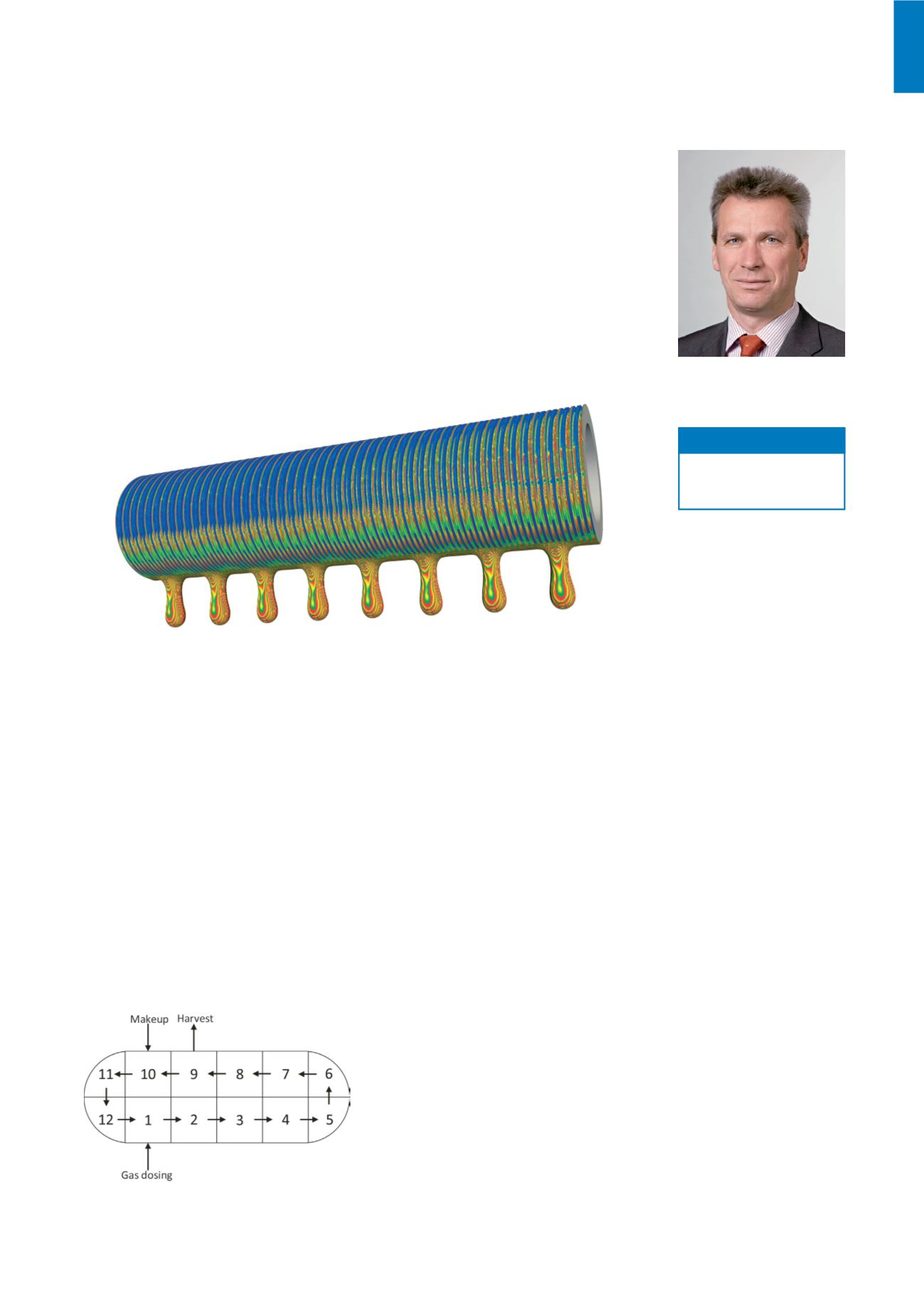

Plant and Process Technology
165
Plant and Process Technology
Modeling and simulation of chemical processes, equipment design, thermodynamic property data
Prof. Dr.-Ing.
Harald Klein
n
In 2016 the focus of research at the Institute of Plant and Process
Technology was the energy efficient design of chemical production
processes as well as innovative design methods for process equipment.
After intensive measuring campaigns in 2014-15 in the 1.2 m diameter
packed bed test column, the focus was shifted in 2016 to innovative
modeling of the maldistribution behavior in packed columns. Furthermore,
the research area of modeling and simulation of the dynamic behavior of
industrial chemical processes started within the consortium SynErgie in
the long-term BMBF project Kopernikus. Finally, in 2016 the first results
were generated based on complex CFD simulations which describe the
heat transfer phenomena during condensation of pure substances at the
outer surface of plain and low-finned tubes
in cooled heat exchangers.
www.apt.mw.tum.de harald.klein@tum.dePhone +49.89.289.16501
Contact
Modeling and Thermodynamic Property Data
A promising option to produce climate-
friendly biofuels is to grow algae in large
open ponds, extract the lipid content of
the algae cells and process it to a bio
refinery. The endproducts of this process
may be biodiesel or jet fuel. The algae
consume CO
2
to increase their biomass
and are then converted into bio-fuels.
A possible CO
2
source is the flue gas of
power plants which can either be used
directly as feed for the algae pond or from
which the CO
2
can be captured and then
CFD Simulation of condensation on a low-finned tube
used as a pure CO
2
feed gas. Although
growing algae in open ponds has been
done for decades, there is still a lot of
research necessary in how to efficiently
grow algae in large systems with a surface
area per pond of 10 ha and above, and
therefore produce biofuels economically.
Especially the design of larger algae
ponds remains a challenge since there
is virtually no practical experience in the
behavior of such large ponds.
At the Institute of Plant and Process Tech-
nology a model was developed that simu-
lates the behavior of raceway-type large
open ponds. The model was programmed
in MATLAB and can be used to evaluate
the performance of open raceway-type
ponds at different locations and periods.
The model is fully dynamic and consid-
ers environmental effects like weather
changes as well as the dynamic behavior
of the pond caused by the coupling of
physical and biological processes.
Modelling of open algae ponds


















